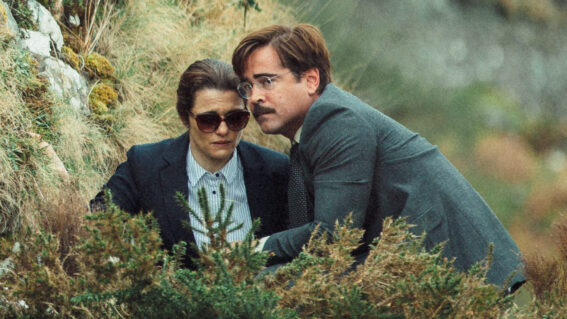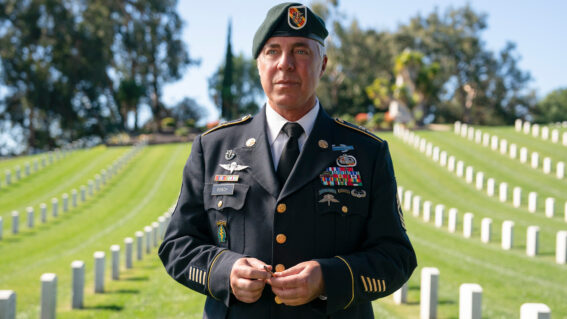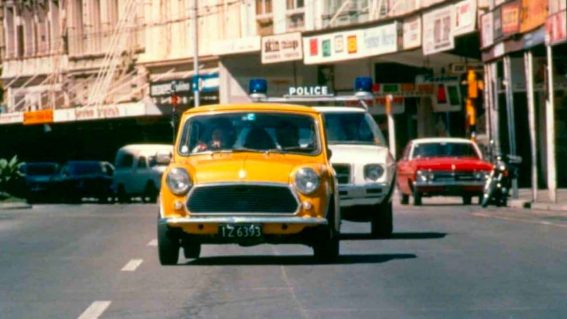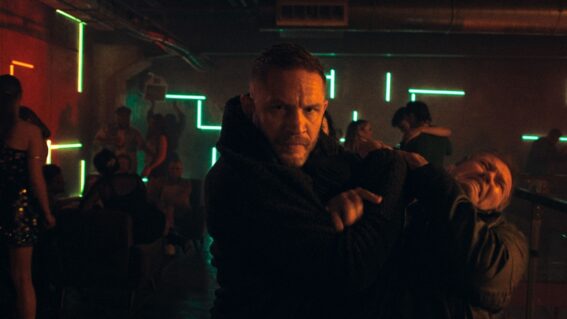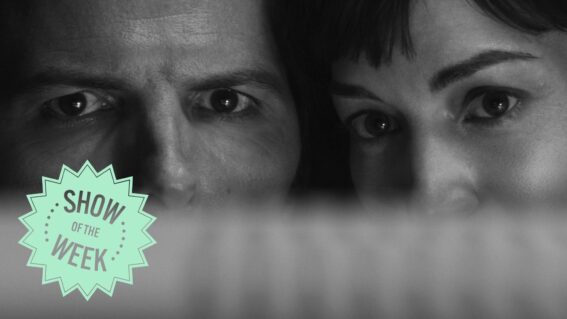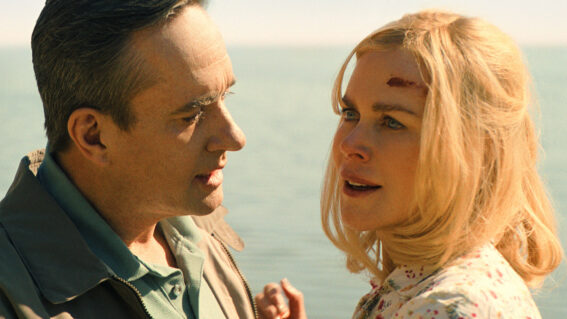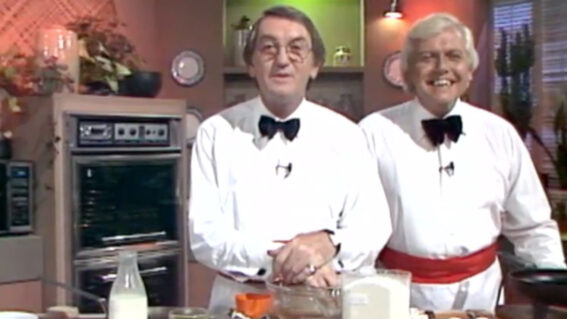Drag show We’re Here runs on empathy, even in the face of hatred


Drag returns to small-town USA at a time of increasingly amplified intolerance in the third season of HBO’s We’re Here – streaming on Neon. While the bigotry encountered will likely make you very angry or at times deeply sad, the show retains its heartwarming core, writes Tony Stamp.
It’s hard to keep track in the maelstrom of online voices and opinions, but it certainly feels like we live in less progressive times than we may think, particularly in that bastion of free speech, the United States of America. Recently we’ve seen a revival of hatred toward the trans community thanks to certain prominent businessmen, allegations of pedophilia against drag performers, and the constant, exhausting use of the word “groomer” aimed at anyone expressing a drop of tolerance toward the LGBTQ community.
This is the climate that season 3 of We’re Here takes place in, and the series doesn’t shy away from it. The first words we hear—pre-opening credits—is a right-wing web video that celebrates “an ocean of liberal tears”, which has gotten word that the HBO drag show is coming to the Texan town of Granbury. Some locals aren’t too happy.
We see some of the 800-plus comments underneath the video, with accusations of pedophilia, violent rhetoric, and mention of attacking the camera crew if and when they’re seen in the town. The commenters are familiar with the show, and someone mentions HBO trying to make drag “family friendly”. Another person graphically describes the hypothetical genitals any kids may hypothetically happen to see. The hypocrisy is right there if you’re willing to see it.
It’s honestly hard to not get very angry watching We’re Here, or at times feel deeply sad. Granbury is described as a “sundown town”—one where any queer or non-white folks would do well to be out of sight after sundown, or there could be trouble. In 2023.
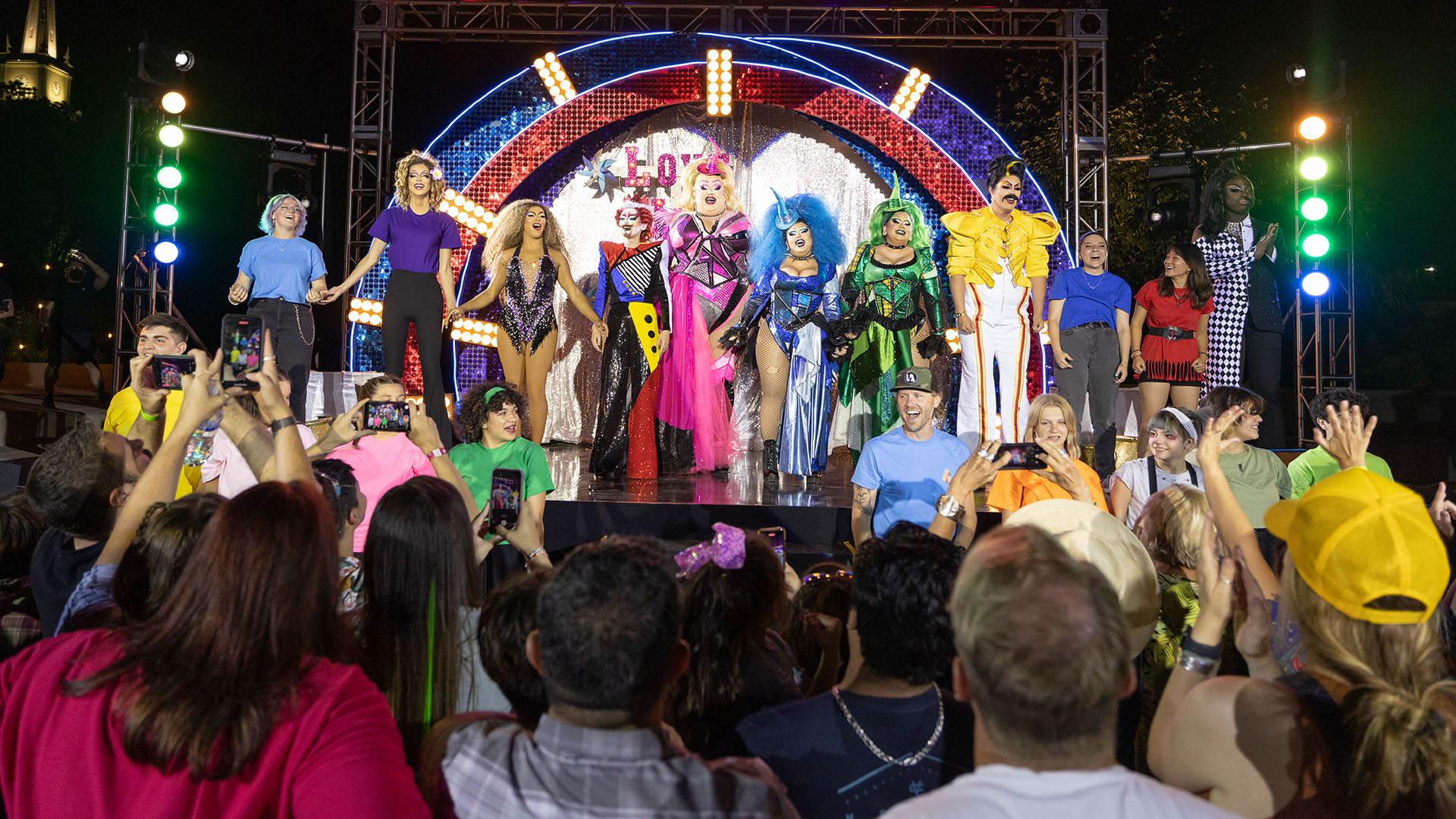
This is a reality makeover show, in which three graduates of RuPaul’s Drag Race travel to small towns in America and make contact with people—queer, straight, trans, cis and otherwise—and teach them how to put on a drag show. The music is jaunty. The editing is rapid. The visual language is pure ‘reality TV’. But each episode runs an hour long, and comes with an HBO budget and sense of quality. Call it prestige reality.
Our hosts are Bob the Drag Queen (incredibly charismatic), Shangella (the warmest and most empathetic of the three), and Eureka (the funniest), who each episode are assigned a local that wants to take part in a drag show. They’re helped with choreography, makeup and performance, and the climax of each show sees the results as they perform alongside the hosts. It’s consistently a revelatory experience for the uninitiated, and watching people who may have felt stifled or unable to express themselves finally given an outlet is always heartwarming.
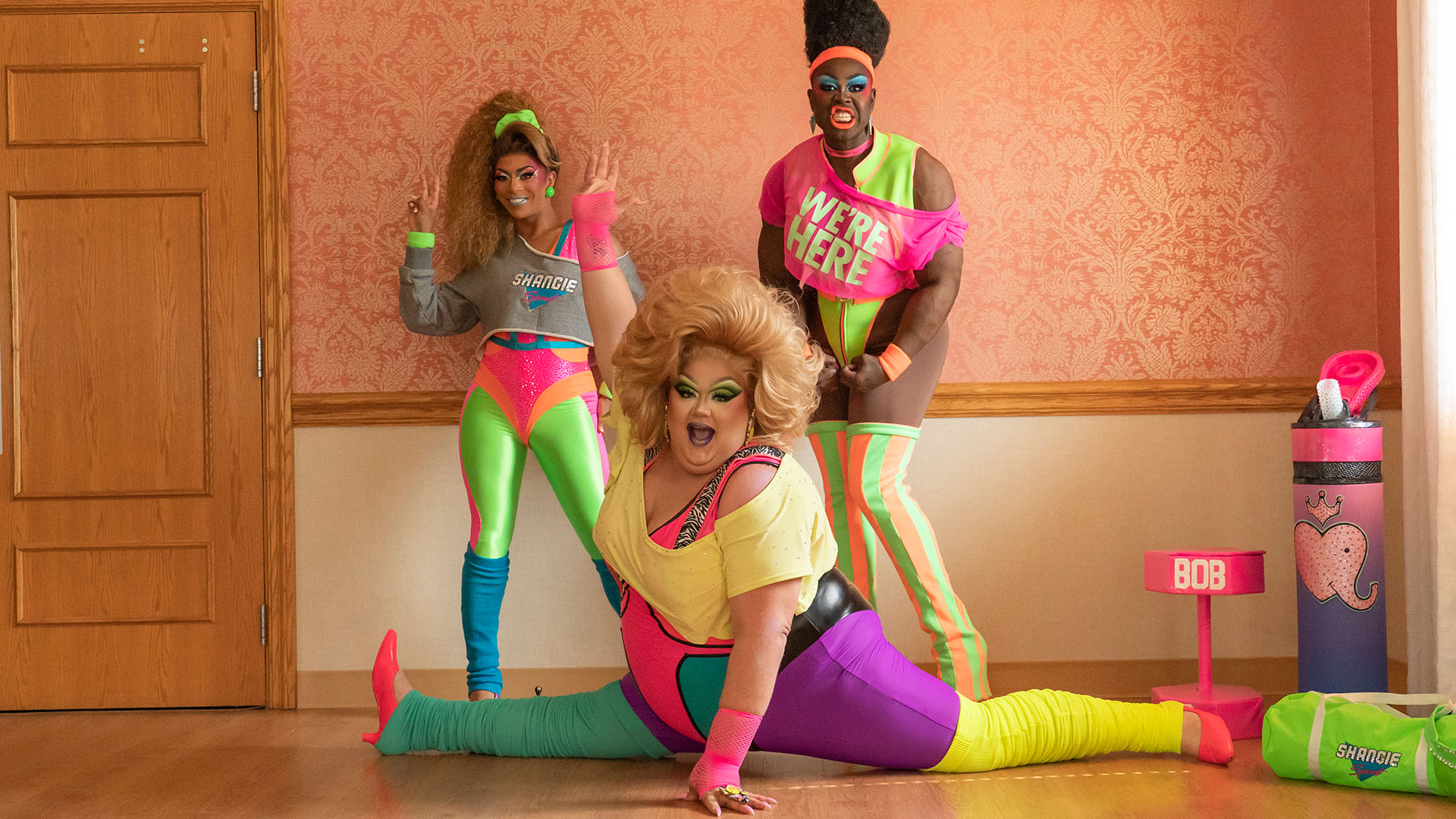
The core trio are as effervescent as ever, but it’s hard not to feel like, three seasons in, things have curdled slightly. They seem tired. A bit more cynical. Frequently they talk to citizens who clearly don’t want them there, despite what they may say. Other locals are more accepting, but open about their fear of reprisal from their neighbours and friends if they spoke up. In episode one during a planning meeting Bob makes it clear they need to get out of town as soon as possible. It’s easy to see why our hosts might be jaded.
This idea, that they can’t simply exist as themselves without someone objecting, is the core of the show, and the exact problem they try to help their volunteers with. Every scene that involves the queens meeting these people, like DeShay or Lou from episode one, is very moving. The sense of relief at being accepted is palpable. The stories of being rejected by friends and colleagues or shunned by the community at large are impossible not to be affected by, and the glimpses of supportive family members showing love despite their upbringing, equally emotional.
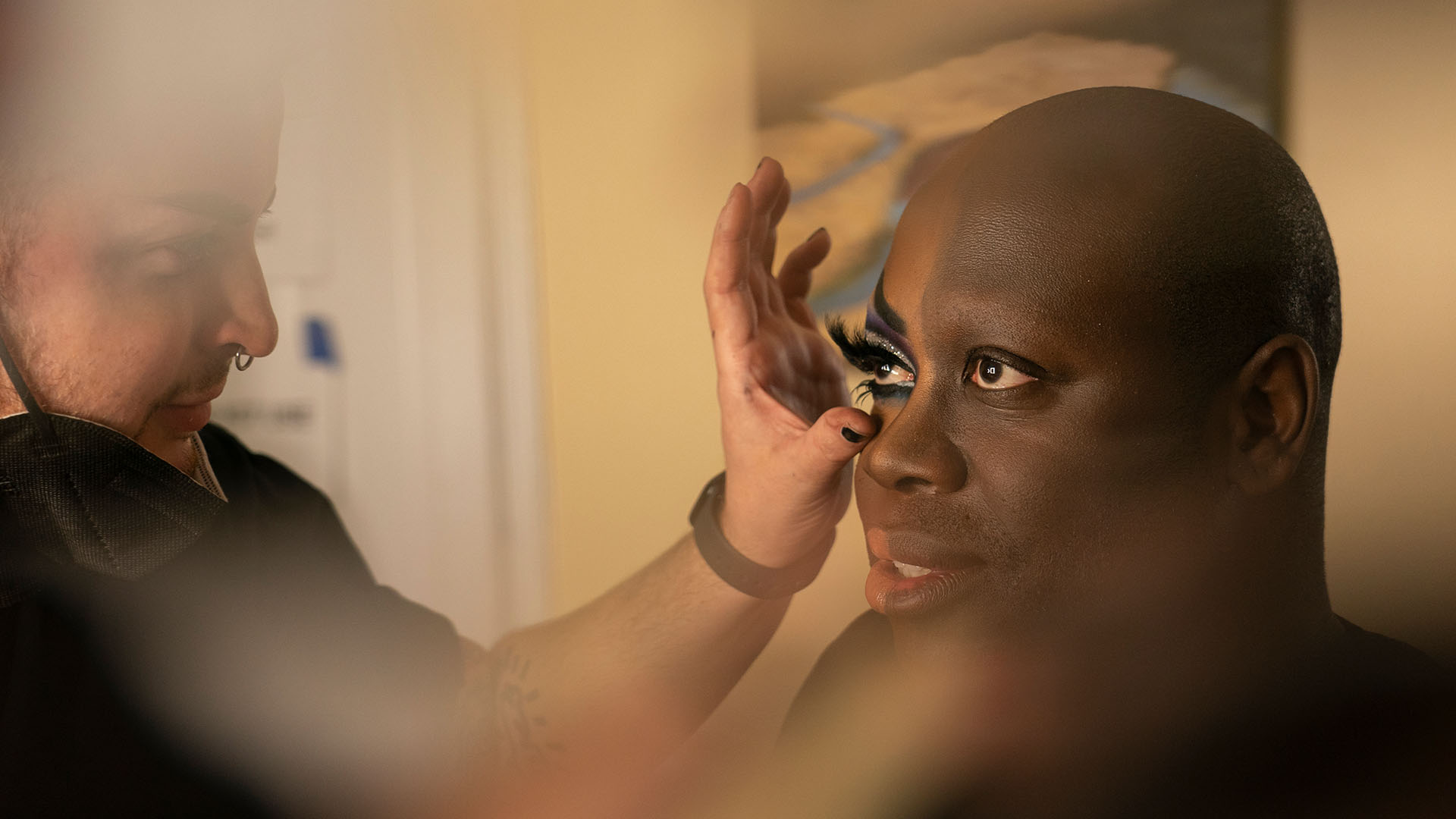
The show is allowed to go much deeper and darker than its contemporaries, and the material warrants it. Adrienne, a straight cis ally, receives an anonymous phone message that threatens to burn down her house and ends with “the more babies killed the better right?” She’s frequently on the verge of tears, and feels like she’s thought of as “the crazy Democrat” in the place that she lives. DeShay is let go from their church position as Minister of Music due to their gender identity.
All these things are enraging, and the hosts are frequently angry, but they never lose their cool, even when dealing with locals face to face. We’re Here is a show that runs on empathy, and even the encounters with people who are, frankly, bigoted, can feel less nasty than pitying. The queens don’t stoop to their level.

Every other person in Granbury is wearing some type of American flag garment. We hear of books being banned from the local library, and a story about a guy turning up to a school board meeting with a gun and making his opposition to LGBTQ education clear. Shangella arranges a drag story hour at a local store, but after a threatening call, it has to be moved to another venue. Eventually the showrunners get word that their base of operations in the town has been spied on and doxxed.
Despite all of this, a show is put on, and lives are changed. We’re Here always pulls through with a happy ending. Often this kind of TV can feel manipulative, and it sometimes does here too, but it’s always engineered to elicit maximum sympathy rather than scorn.
In one scene the queens attend a 4th of July fireworks show, and Bob is moved to tears, explaining that it’s a bittersweet occasion when the country being celebrated still makes it so hard for many of its citizens to simply exist as they’d like to. Eventually a survivor of the Pulse nightclub shooting takes part in the show, and it’s as touching as you’d expect, but it’s worth noting that in the short span of time since season three of We’re Here started airing, a similar attack took place at Club Q, Colorado.


